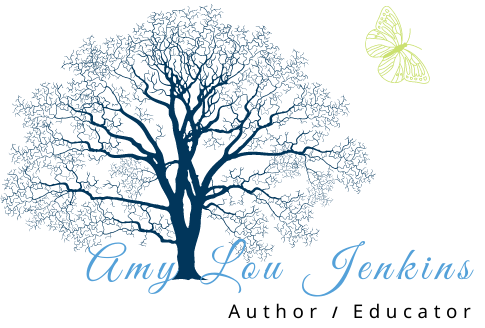If you've decided to write a memoir, one of the most important decisions you'll have to make is the theme of your memoir. Some say you need to find your theme before you begin your writing process. But most writers find their theme and story on the page as they write. It's essential to select a clear and consistent theme that will guide the narrative and provide a structure for your story. But write your way to finding your theme. Then structure your memoir around the themes.
Your life is full of many experiences. Your reader doesn't care. They are not buying and reading books to learn all about you. They are reading to have a meaningful experience.
A Story has an Arc and Drama
Story will give readers a meaningful experience. Once a memoirist understands the story of transformation they are going to tell and the thematic choices within the story, they know what events to include in their page-turning memoir. A page-turner doesn't require that the writer is a 008 Secret Agent, it does require that a story is told with something at stake and with thematic cohesion. A bunch of events in chronological order is not necessarily a memoir that will find a readership.
What is Theme?
A theme is a central idea, message, or topic that's reinforced throughout the story. It's not a moral lesson but rather a common thread that binds all the elements of your narrative together.
If you have already written about your life, but don't yet have a clear idea of your theme. Your work is still prewriting. Reflect on what you learned as a result of the personal writing you have captured on the page. Consider how your experiences affected your life choices and your emotional and spiritual life. This can be incredibly difficult because you have to be honest with yourself and confront any mistakes and lessons. Counterintuitively, if you make yourself the perfect hero of your story, your reader won't like you. They won't like you because the story won't be honest. Your imperfections and faults are essential to your story and to the voice of your reflecting narrator.
Ask Yourself Key Questions
Another way to find your memoir's theme is to ask yourself some key questions. What were the important themes that emerged from your writing? If you don't have prewriting that reveals your theme. Download our free workbook. And then consider what lessons did you learn from the experience? What did you learn about yourself in the process?
These questions can help you identify the underlying themes in your memoir as well as define what you want to communicate within your memoir. Look for themes that are universal and timeless, so that readers will be able to relate to them no matter when they read them. These could be ideas such as redemption, understanding, or forgiveness.
Choose a Unifying Theme
When making your final decision, make sure it's something that will unify and strengthen the entire story. A single theme that ties all of the elements together in an effortless (for the reader) way will create a powerful narrative for readers to enjoy.
Finding the right theme for your memoir can be daunting at first, but it doesn't have to be! By reflecting on your writing and life and asking yourself some key questions, you can identify the perfect theme for your story and create an emotional and impactful piece of work. You may think the angels will sing and you will be 100 percent positive once you've selected your primary theme. You may have doubts. That's normal. Don't get stuck in indecision. Write and the themes will emerge. Choose your primary theme and keep writing and structuring your memoir.
Examples of themes in memoir
1. Overcoming Adversity: Many memoirs explore the theme of overcoming adversity. This could include overcoming a traumatic event, an illness, or a personal challenge. Examples of memoirs with this theme include those of Nelson Mandela, Helen Keller, and Jeremy Schreiber.
Overcoming Adversity: Many memoirs explore the theme of overcoming adversity. This could include overcoming a traumatic event, an illness, or a personal challenge. Examples of memoirs with this theme include those of Nelson Mandela, Helen Keller, and Jeremy Schreiber.

2. Finding Your Purpose: Memoirs often explore the theme of finding one's purpose and direction in life. Memoirs such as Eat Pray Love, Wild, and Big Magic by Elizabeth Gilbert are examples of works that explore this theme.
3. Forgiveness and Redemption: Memoirs often explore the theme of forgiveness and redemption. Often, memoir writers will share their stories of personal growth and development through forgiving others and themselves for past actions. Examples of such memoirs include Angela Duckworth's Grit and Jeannette Walls' The Glass Castle.

Moving Beyond Fear: Many memoirs explore the theme of moving beyond fear and taking control of one's life despite fears and doubts. Resilience by Eric Greitens is a great example of a memoir that explores this theme. and is part memoir and part self-help. Other examples include Cheryl Strayed's Wild and Brené Brown's Daring Greatly.
More examples of Theme and Memoir
6 Theme: The Power of Love
Novel inspired by personal experience: A Thousand Splendid Suns by Khaled Hosseini
7. Theme: Overcoming Adversity
Memoir: Educated by Tara Westover
Secondary Themes in Memoir
Memoirs have primary and secondary themes in most cases. A memoirist may explore their own experience as a child as when their parents were unfaithful to each other and then got divorced. This might set against the present-day family experience and marital difficulties and successes. So, the themes in this example could be divorce, coming of age, and letting go of old fears.
Common secondary themes in memoirs are growth and self-discovery. Many memoirs tell the story of an individual's journey from innocence to experience, and the lessons and insights they gain along the way. The protagonist must accept the limitations of their circumstance and confront the challenges life presents, often leading to a sense of self-awareness and personal growth. This growth can be driven by a variety of motivating factors, such as poverty or tragedy, or it can be simply a natural progression in maturity. Regardless, this growth and self-discovery form a powerful secondary theme that is often present in successful memoirs.
Additional Themes in Memoir
8. Overcoming obstacles and pain.
9. Finding strength through adversity
10. Personal growth
11. Forgiveness and redemption
12. Facing inner demons
13. Transcendence and transformation
14. Learning from the past
15. Coming to terms with loss and grief
16. Resilience and finding hope
17. Understanding one's identity
18. Accepting change
19. Adjusting to a new normal
20. Coming of age and coming to terms with obstacles
21. Compassion
22. Dealing with loss
23. Determination
24. Discrimination
25. Friendship
26. Greed
27. The continuum of hard work to laziness
28. Hope
29. Leadership
30.Making tough choices
31.Overcoming adversity
32. Parenthood
33. Poverty
34. Self-esteem
35. Survival
36. War
36. Wealth
37. Breaking Free
38. Learning to Love (oneself or others)
39. Moving beyond old ways of thinking and acting
40. The alchemy of opposites
41. Seeing with new eyes
42. From brainwashed to new thoughts
43. Moving between cultures
44. Being a man or woman
45. Endings and beginnings
46. Soft strength
47. Accepting and making peace
48. What we leave behind and what we take with us
49. Starting Over
50. Finding community
Whatever your theme, you won’t be writing about it throughout your memoir. But it will be there underpinning your story. You may write about your theme directly a few times. More importantly, it’s part of the scaffolding that holds your story together and gives it meaning. Once you know your theme, it’s possible to structure and edit your memoir. Read some memoirs with themes similar to those you may use. Mentor texts can inspire your work.
What activities will help to find the theme of your memoir?
Find two actions to take below.
1. Download a guide/workbook to begin your memoir.




A really great page full of useful information on themes. Thank you!